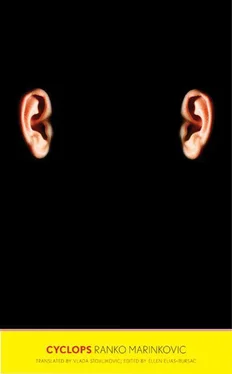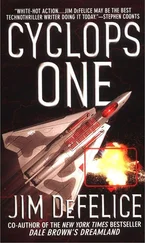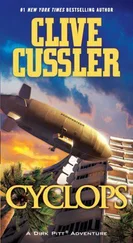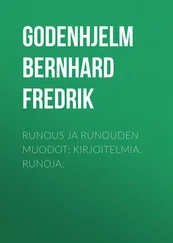“Unfortunately, I …” Melkior stammered shyly. “This is all I’ve got,” he offered Four Eyes a silver fifty-dinar piece and displayed his empty wallet, “Look.”
“Heaven forbid!” Four Eyes cried out, flinching as if frightened. “Take a fellow’s last penny? Never! I’m not that kind of guy!”
“But it’s not my last,” Melkior was almost pleading, “I’ve got some coming tomorrow.”
“Are you sure?”
“Quite sure.”
“Well then … But listen, I don’t want you lying to me! If you’re lying, then this is charity, and I won’t have that!” Four Eyes asserted with pride and added in a confidential tone, “And look, I’d like to ask you as a favor, let’s keep this between ourselves, shall we? By the way, where can I find you to pay you back?”
“No problem, we’ll be in touch …”
“Distressić, old boy, I can’t thank you enough. I’ll never forget it, so help me God!” He gave Melkior a hurried handshake, looking him in the eyes with sincere gratitude. “Bye then. I’m off to buy the stamps,” and he took off at the same hurried purposeful clip with which he had come into view a little while before.
Melkior knew that Four Eyes had duped him, but had been unable to resist the extraordinary form of the effrontery. He then wisely resolved never to heed again any baited hooks thrown his way. So he now thought he’d ignore the Trams-are-not-what-kill-you-nowadays man with the newspaper and to hurry after Dom Kuzma; he had lost him again among the passersby. Nevertheless he cast a glance at the man with the newspaper out of some sort of curiosity. The other perceived the glance as a door that was opened a crack and scuttled right inside:
“It’s not the trams that kill you these days, my dear sir, it’s this!” and he nodded at the bold headlines in the newspaper.
Melkior read, BOMBS HIT LONDON IN WAR’S WORST RAID and, underneath, “Six Hours of Hell and Horror — Entire Quarters in Flames” … But he could picture nothing specific behind those alarming words, no dead child, crushed skull, man despairing over his demolished home and slaughtered family, none of those terrible scenes which were really there behind headlines. Melkior remained indifferent, which seemed to offend the man:
“What do you say to that? Hardly a traffic accident, eh?” he was saying with a bitter smile, proud at being able to comprehend the extent of the horror in the headlines.
“What can I say? You could have read the same thing yesterday and the day before …”
“Yesterday and the day before … If it was there yesterday and the day before, does that make today less appalling?” the man asked sternly. “You don’t have to be a doctor to see that. But of course, doctors see only what it’s like to be ill when they get sick themselves. Now, what about when those people over there”—he gestured vaguely with his head—“read about us in the papers one day? When a California doctor starts muttering that the headlines are boring, always the same as yesterday, and the day before? Just because you and yours were spared yesterday and the day before, does that mean you’ll be saying today and tomorrow that everything’s the same?”
Melkior was finding the conversation strange. … And why the devil had this man picked on no one but him?
“Yes, well, people are funny that way,” he said, merely to end the unexpected encounter.
“What way?”
“Well … if one of us were to be run over by a tram they would be more upset about it than about those thousands killed in the ruins in London. Not because they like us more — simply because they don’t want to expend their imagination on things like that.”
The man didn’t understand what Melkior was on about, and the word imagination struck him as downright offensive.
“Imagination?” he asked sternly. He knitted his eyebrows and looked Melkior in the eye with unconcealed disapproval. “Conscience, not imagination! What’s there to imagine? Shall I pretend I’m not afraid of war? No, not for myself! Nor for the wife! I told them this morning at the Mobilization Office … They gave me papers for Apatin … I said, I’m not talking about my wife … If there’s got to be a war, I said, you won’t be canceling it for my wife’s sake. Right? But how can I look my fourteen-year-old boy in the eye and pretend to be as full of cheer as if I were going bowling when the child reads the papers and knows that the Jerries broke through the Maginot Line and took France in a month? Children are no longer babes these days. The boy knows where I’m going and he never says a word … And I hear the little ones talk: Daddy’s going to drive a tank, they say. That’s what things have come to!” and the man spread his arms, showed that they were holding nothing, empty helpless arms.
“So you’ve been …” but the man didn’t let him finish.
“Called up!” he cried sharply as if cursing God. “There, see for yourself: youngsters strutting about free as birds, picking up girls, while they go calling us up, the class of nineteen hundred! They told me — because I’m a driver with Impex — they told me I’d been reclassified as a tank driver. But I’ve only seen tanks in the cinema! How on earth am I going to drive one? And Russian — because they say the Russians are going to give us the tanks — Russian tanks are not designed for our kind of terrain, no sir, not by a long shot! That’s something for those bigwigs up in Belgrade to sort out, not for a simple driver like myself, right?”
Melkior had been looking in all directions in search of Dom Kuzma and scarcely listened to the argument about the tanks. He asked the man offhandedly, only to be polite:
“Not for our kind of terrain, you say?”
“By no means! Those are steel fortresses, weighing upwards of ninety tons, what use can they be up our hills? This is a mountainous country.”
“How strange …” said Melkior quite absentmindedly. He was overcome by an odd kind of queasiness at the word mobilization. “Mobilizing, aren’t they?”
“You bet they are! My best friend’s been in since last Tuesday. Class of nineteen hundred, same as me. He’s all right, he’s a tailor, they didn’t post him, he’s stitching great coats, sleeping at home. They didn’t even cut his hair. And me they’re sending to Apatin!”
The man had softened with self-pity, so much so that his eyes went moist. Melkior felt the pointless need to offer consolation which humans resort to when failing to find a better or more sincere feeling.
“Who knows? Perhaps it’s only exercises. After all, there’s a war on in Europe, nobody wants to be caught by surprise.”
“That’s just it!” cried the driver with desperation as if Melkior has guessed what he feared most. “That’s what Hitler is counting on — surprise!”
Coming quite close to Melkior, he said in a confidential whisper, “There are Jerry spies and fifth columnists everywhere. They’ve been paddling about in rubber boats since nineteen thirty-seven, photographing the natural wonders. Tourists,” and he laughed with bitter irony as if he had found some relief in a shot of stiff drink.
“But you’re busy,” he added, self-conscious, having noticed Melkior’s impatience. “Yes, well, we’ve all got our worries. Goodbye,” and off he went, opening his paper again with an air of importance, like a caring man among the lot of happy-go-lucky fools.
Melkior remained where he was. What was his rush? His pity over Dom Kuzma’s fate struck him now as ridiculous. The word mobilization had filled him with a feeling of unbearable dread, the restlessness of a terrible anticipation had come over him. This was now something he would have to live with. … There appeared (childish, of course) images of deserted streets, of doors and shops boarded up. … The dead city has shut itself into its walls, with not a sound to be heard, not a light to be seen. Behind closed shutters cautious matches were struck, papers burned in stoves, things piled into suitcases: people packing, hurrying, leaving. … The streets were deserted and silent. The eerie quiet was disturbed only by an occasional government motorcar driving past at breakneck speed; it carried urgent orders: burn the documents … submit the report. … The echoes of horses’ hooves in the night, the whisper of mysterious words among the sentries, top military secrets.
Читать дальше












